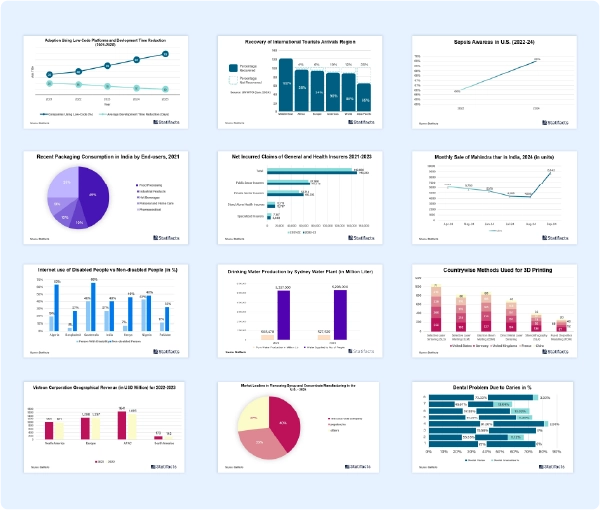The U.S. digital therapeutics market size surpassed USD 3,040 million in 2024 and is predicted to reach around USD 21,140 million by 2034, registering a CAGR of 21.4% from 2025 to 2034.
U.S. Digital Therapeutics Market Report Highlights
- By product, the devices segment held the largest market share in 2024.
- By product, the software segment is projected to expand rapidly in the market in the coming years.
- By application, the diabetes segment held the biggest market share in 2024.
- By application, the obesity segment registered its dominance over the market in 2024.
- By end use, the providers segment dominated the market.
- By end use, the employers segment is predicted to witness significant growth in the market over the forecast period.
The U.S. digital therapeutics market is witnessing rapid expansion owing to rapid technological advancements and an escalated portfolio for personalized care solutions. Various solutions are re-engineering healthcare by provisioning low-cost, data-driven, and patient-centric solutions for the management of chronic diseases, mental health disorders, and lifestyle-related conditions. The market is anticipated to grow immensely in the upcoming years, with the expansive regulatory approvals of applications and their integration into standard treatment regimes for patients by healthcare providers.
The rising burden from diabetes, cardiovascular conditions, and obesity is one of the main drivers for the digital therapeutics market in the U.S. Digital therapeutic solutions would provide a viable and scalable intervention in the management process that supports various stakeholders parametric development, policy development, and public awareness. These software interventions extend via digital channels as they support continuous monitoring.
Advancements in AI and Data AnalyticsAI and big data analytics are revolutionizing digital therapeutics, enabling enhanced diagnosis, treatment individualization, and patient activation. AI-based algorithms are harnessed to extract material from patient records in real-time, develop optimized treatment plans, and predict potential health risks. AI-driven chatbots and virtual health assistants are improving access to healthcare, thus making digital therapeutics more interactive and efficient.
With a resounding call for support from the U.S. FDA and other healthcare organizations, the regulation and protective umbrella surrounding healthcare systems are changing. A number of solutions have gained FDA approval, paving the way for broad adoption in clinical practice. A bright side is the growing support of reimbursement policies for the healthcare provider market, with incentives for integrating into mainstream treatments. Slate-on-time insurance brings new access via country-wide deployment interventions by insurance-laden patients; that's being seen as a top driver of growth in the market.
The foremost challenge faced by U.S. digital therapeutic solutions arises in maintaining data security and privacy. As these solutions primarily rely on patient health data, there is a major concern about data breaches, unauthorized access, and guidelines that govern matters like laws introduced by HIPAA. Likewise, there is a fear that wide implementation of digital therapeutics may not take place due to patients' or healthcare providers' uncertainties regarding data ownership or misuse of their private health information.
Artificial intelligence (AI) has come to be really important for the growth of U.S. digital therapeutic solutions. AI-powered tools improve treatment personalization by using large datasets to identify trends, predict disease progression, and recommend customized interventions. In behavioral health applications, AI is providing virtual therapy, tracking moods,
and providing cognitive-behavioral therapy (CBT) programs for mental health conditions. AI-powered remote monitoring systems also enable real-time patient progress tracking, ensuring better treatment plan adherence and timely interventions. As AI develops further, its integration into digital therapeutics will be strengthened, leading to increased accessibility, efficiency, and, eventually, improved patient outcomes.
While digital therapeutics are aimed at chronic disease management and mental illness at present, research is underway to examine their therapeutic use in oncology, respiratory disease, and recovery after surgery. As more evidence of their efficacy in managing various medical conditions comes to light, the market will expand by leaps and bounds. Corporate wellness programs and health insurers are beginning to feel the effects of digital therapeutics in controlling healthcare costs and improving worker health. Employers are incorporating digital health choices as part of wellness programs. This trend will result in increased U.S. digital therapeutic solutions market penetration and adoption over the next few years.

